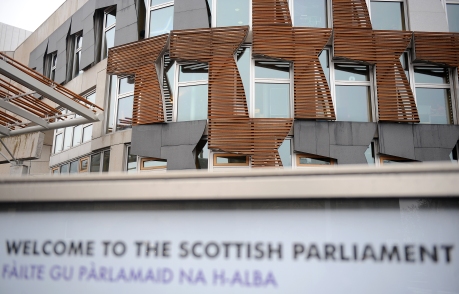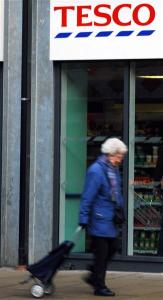 By Paul Thornton
By Paul Thornton
A CUT-PRICE restaurant for MSPs has provoked fury after it was revealed the meals it serves are subsidised by £12 a plate.
The members’ restaurant in the Scottish Parliament serves up fine dining for Scottish politicians and their guests but massive staffing costs means last year it ran at a loss of £88,000.
The plush eatery employs nine members of staff, including three chefs and three waiters yet only served a total of 7,160 meals during 2008.
Now the British Taxpayer’s Alliance have branded the subsidy “wrong” while a hotelier group say the staffing costs are “unusual”.
The loss works out at more than £2,000 of subsidy for every week that the parliament is in session.
Between January 1, 2008 and December 31 the restaurant brought in £53,984 from food bills.
But it was crippled with expensive staffing costing over £103,000 while the produce to make the food cost another £30,443 bringing the total cost to over £134,000 for the year.
That £80,000 short-fall was footed by the tax payer.
Chief executive of the British TaxPayer’s Alliance, Matthew Elliot, blasted the meals as “wrong”.
He said: “These subsidised meals are wrong and are costing taxpayers a fortune.
“Many ordinary people are struggling to put food on their own tables in the recession after shelling out for sky-high taxes to pay for this subsidy.”
The lunch menu reveals the haute-cuisine politicians are treated to at fast-food prices.
A duo of smoked salmon and beetroot lax with potato blini, herb cream cheese capers and spring onions costs just £1.40.
And seared salmon with herb crème fraiche potatoes, braised celery and soy cucumber relish is £4.80.
The restaurant spends 77 per cent of its turnover on staffing compared to the industry average of 44 per cent.
And the bar of the restaurant is also run at similar losses with over a dozen fine whiskies available for less than £3.00 per measure.
Despite spending £31,000 on staffing alone the bar made a total of just £36,000 – the cost of the product as well as overheads left the loss on drinks alone at £8,000.
The basic salary for MSPs is £52,226 while they are also entitled to a series of allowances to employ research staff or pay office rental expenses.
Mr Elliot added: “This sort of fine dining is certainly not available to schoolchildren, soldiers or other people who get help with their meals, and it’s time MSPs took their snouts out of the trough and coughed up for what they eat.”
A spokesman for the British Hospitality Association said the numbers did not accord with industry averages.
He said: “The food bill seems rather low while the staff bill appears high compared with industry averages.”
Food journalist Jonathan Trew said privately run restaurants could not afford to sell such cuisine at knock-down prices.
He said: “That’s certainly very cheap, food prices have rocketed in the last year or so and that’s been a problem for restaurateurs. Profit margins are very thin and a lot of places are closing and changing hands at the moment.”
Mr Trew said the prices on the members’ restaurants member were between one third and one half cheaper than private establishments.
He said: “These prices are a fraction of what they would be at a city centre restaurant and obviously it’s the tax payer that is footing the bill.
“MSPs are paid fairly well compared to the common man and they could afford to pay more realistic prices.”
A spokesperson for the Scottish Parliament said: “Since the members’ restaurant opened the parliament has been clear about the cost of running the facility.
“The parliament’s corporate body sets the tariff which covers the cost of the food and contributes towards labour. Any shortfall in covering the labour cost is made up by the parliament.
“This contractual arrangement is similar to other organisations and companies that provide catering for its staff and visitors where there is a limited potential customer base.”
Monday, March 16, 2009
Categories: 1, News, Politics, Scottish News . Tags: british hospitality association, cheap meals, Deadline, Deadline Press & Picture Agency, edinburgh, food, haute-cusine, members restaurant, MSPs, parliament restaurant, paul thornton, politicians, Politics, scottish food, scottish news, scottish parliament, subsidies, taxpayers alliance . Author: paulthornton . Comments: 1 Comment

 By Christine Lavelle
By Christine Lavelle

